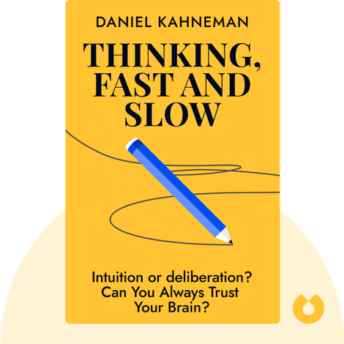خلاصه صوتی (بلینکیست)
What’s in it for me? Learn to free yourself from philosophical dogmas and assert your own values.
Since the dawn of civilization, the world has been gradually becoming a better and better place – or at least that’s what many of us would like to believe. Sure, there are still all sorts of problems, but, overall, society has progressed from the barbarism of the past. We live in one of the least violent eras in history, don’t we? We’re also far more free and equal than previous generations, are we not?
Well, Friedrich Nietzsche would beg to disagree. Writing in the late nineteenth century, the iconoclastic German philosopher thought that most people in the West were suffering from an acute case of dogmatic thinking, which was preventing them from seeing the world as it truly is – a place predicated on violence and inequality.
More than a century later, Nietzsche’s ideas remain as provocative as they were back then. In Beyond Good and Evil, one of his seminal works, he takes aim at many of the moral principles, concepts, and values that many of us still hold dear. In these blinks, we’ll take a look at how he sought to peer beneath the surface of Western thought and expose the myriad prejudices, falsities, and unsavory motivations that he believed to be lurking there.
Along the way, you’ll learn
- how we’re utterly deceived about our own intentions;
- that what we believe to be the truth is always connected to power; and
- why our so-called morality is actually deeply immoral.
It’s impossible to do philosophy without making assumptions.
Ever since the seventeenth-century French philosopher René Descartes proclaimed “I think, therefore I am,” much of Western philosophy has been obsessed with beginning the philosophical process from “first principles” – that is, doing philosophy without taking any unwarranted assumptions for granted.
As we’ll see, Nietzsche cast doubt on the idea that it’s even possible for a philosophy to avoid presupposing anything. And he poked fun at pretty much every philosopher for secretly smuggling prejudices into their philosophies.
In particular, Nietzsche felt that the entire Western philosophical tradition was pervaded by a superstitious faith in the dogmas of Christian theology. Even as conscious faith in Christianity was waning in nineteenth-century Western Europe, philosophers continued to take such notions as the “soul” and “morality” for granted in their secular philosophies.
To Nietzsche, philosophers were being disingenuous. They claimed to present the unbiased, indisputable truth, but all they really did was dress up their own prejudices as rational arguments. This is what Nietzsche meant when he claimed that every philosophy is but an autobiography of the person who created it.
The key message here is: It’s impossible to do philosophy without making assumptions.
Let’s go back to that proclamation, “I think, therefore I am.” For many of Nietzsche’s predecessors, this was an example of what’s called an “immediate certainty” – that is, an idea so obviously true that it doesn’t need to be justified. You know that you are thinking; therefore, you know that you exist. It’s as simple as that – or so the reasoning goes. Descartes built his entire philosophical system on this one, supposedly indisputable, axiom.
But hold up. Is the claim “I think, therefore I am” really so obvious that it can’t be doubted?
On the contrary, Nietzsche claimed. This little sentence actually contains a lot of unjustified assumptions. For starters, it assumes that there exists an “I” that does the thinking. But who knows? Maybe the thinking is producing the “I.”
The proposition also presupposes an understanding of the concept of thinking. But how do you know that what you’re doing right now is thinking? Maybe you’re feeling, or doing something else entirely!
When a philosopher claims that something is obviously true, that’s enough reason to raise an eyebrow. If an idea appears obvious to them, it’s probably just so ingrained in their worldview that they can no longer see it for what it really is – an unjustified prejudice.
Over the next few blinks, we’ll take a look at how Nietzsche sought to expose some of these unjustified prejudices that constituted the background assumptions of the philosophers who came before him.
The unified self is an illusion; there’s only the will to power.
The first prejudice on our list is the concept of the “soul,” which philosophers have unwittingly adopted from Christianity in their notions of “the self.”
It might seem strange to call something as seemingly irrefutable as “the self” an invention of Christianity. But what Nietzsche takes aim at here is a particular conception of the self that we tend to take for granted. According to this conception, we are a single, undivided entity that continues to exist across time. We also imagine that we act freely and that our motivations are basically moral and relatively transparent to us.
Nietzsche throws this conception of the self into the fire. For him, what we call “the self” actually contains a hodgepodge of diverse and contradictory forces. Human experience is not a unified thing, but rather the product of innumerable drives, desires, and passions all competing with one other for conscious expression. The only thing these forces have in common is what Nietzsche calls the will to power.
The key message here is: The unified self is an illusion; there’s only the will to power.
For Nietzsche, human beings are far removed from the pious image often presented by Chistianity. In the post-Darwinian age, we know that we’re not essentially different from the rest of nature. We are, at the most basic level, bestial creatures motivated by innate desires to reproduce, spread our species over the world, and assert our dominance over weaker organisms.
According to Nietzsche, our innate drive to assert power – or will to power, in his terminology – is the underlying force of all human activity. It’s not something we can turn off; it’s simply a natural principle of self-assertion that enables organic life to survive and thrive.
This distasteful image of humanity has been suppressed in the doctrines of philosophers and religions since time immemorial. They would rather imagine humanity as something higher and holier than other animals. But while these doctrines have beautified humanity with pious makeup, they’ve never really effaced the creature within us.
So, while we often consciously tell ourselves nice-sounding stories about the loving and selfless nature of human beings, beneath the surface there are often darker and more animalistic forces at play.
For example, when we give aid to those who are less fortunate, we might tell ourselves that we’re doing it out of selfless goodwill. But have you ever noticed that you’re more likely to help out someone you’re attracted to?
For Nietzsche, we never really know the true motivations that drive us. But he questions the value of even having such knowledge in the first place. Sometimes, it’s easier to believe in the pretty lie than to accept the ugly truth.
There are no eternal truths that transcend individual perspective.
Philosophy’s most pervasive and entrenched dogma can be traced all the way back to Plato, the ancient Greek philosopher who birthed the Western tradition 2,500 years ago. That dogma is a specific conception of “the Truth,” which was later embraced by Christianity.
This concept of Truth supposes that there are eternal, unchanging facts about the world that exist independently of human observers. In Plato’s philosophy, this eternal Truth takes the form of invisible ideals, such as “justice” and “beauty,” which exist outside of human experience and form the basis for that experience. In this philosophy, we’re asked to believe that these invisible, unchanging ideals are somehow more real than the changing world of our experience – the one we actually live in.
Nietzsche turns the Platonic philosophy on its head by declaring that the world of experience is the only reality there is.
The key message here is: There are no eternal truths that transcend individual perspective.
Nietzsche’s entire philosophy is based on the conviction that the only reality we can know is the one we see around us – the tumultuous and continually changing world of our experience.
While concepts like “justice” and “beauty” certainly have a place within this picture, they’re not eternal forms that exist in some ethereal, metaphysical realm. On the contrary, as concepts, they’re just components of our language. They’re human inventions that simplify the world and help us to make sense out of all the chaos.
But since people have different experiences and use different concepts to talk about them, it follows that different people have different ways of making sense of the world. People come to understand the universe differently and talk about it in their own terms – hence the sheer diversity of opinion in the world.
This simple insight forms the basis of Nietzsche’s philosophy of perspectivism. According to this view, it’s not possible to adopt an “objective” point of view that is somehow independent of human perspective and human language. The only truth, for Nietzsche, is the great plurality of human perspectives.
Nietzsche’s criticisms of other philosophers often hinge on their tendency to go beyond their own experiences and speak on behalf of everybody. Such philosophers pretend as though their perspective is the only one that’s possible.
While Nietzsche criticizes philosophers for imposing their personal perspectives on others, he also admits that this process is pretty much inevitable. Indeed, this is exactly how people’s perspectives come to be changed. Great minds use their reason and talent for rhetoric to seduce other people into adopting their language or way of thinking.
This is simply another expression of the will to power. Philosophy, Nietzsche tells us, is the most spiritual form of the will to power.
Christian morality serves the herd at the expense of the individual.
We come now to Nietzsche’s main preoccupation – Christian morality.
When Nietzsche talked about “Christian morality,” he was referring to the constellation of virtues that encompass a sense of selfless goodwill for other people. We’re talking about qualities like generosity, kindness, modesty, pity, and empathy.
Now, for pretty much every moral philosopher prior to Nietzsche, the main objective of their work was to furnish a rational basis for this morality. The eighteenth-century German philosopher Immanuel Kant, for example, is famous for claiming that we can deduce universal moral principles on purely rational grounds. But moral philosophers like Kant always took the value of morality itself for granted. It never occurred to them to ask whether morality is actually a good thing.
Unsurprisingly, Nietzsche takes a more provocative position on the matter. He argues that Christian morality is a feeble value system that’s harmful to the individual.
The key message here is: Christian morality serves the herd at the expense of the individual.
For Nietzsche, it makes perfect sense to question the value of a value because values often have a utility to the people who express them. For example, the values of modesty and self-renunciation might be quite beneficial to scientists who need to detach themselves from their work. In leaders, however, such qualities would be detrimental – you can’t inspire others if you’re not even confident in yourself.
For Nietzsche, it’s always worth asking whether our values serve us or diminish us. And if they diminish us, shouldn’t we reject them?
This is exactly the problem with Christian morality, in his view – it diminishes the individual. In fact, the whole purpose of this morality is to suppress and tame individuals in order to render them harmless, docile, and productive members of society. For this reason, Nietzsche labels it herd morality.
Nietzsche asks us to compare the timidity and meekness of the modern-day European to the violent strength and vitality of the barbarian of yore. Clearly, we took a wrong turn somewhere, he claims.
Specifically, that wrong turn was to adopt a prohibitive value system that’s more concerned with our relationship with others than our relationship with ourselves. Our morality is designed to encourage us to put limits on our own will to power, to lower ourselves in our own eyes, and to suppress our own desires and passions for the sake of other people.
To be sure, morality has been very successful at suppressing humanity’s violent tendencies, but that energy hasn’t just disappeared. On the contrary, it’s been turned back on ourselves. Through Christianity, we have inverted our will to power and become the object of our own violence.
Modern European morality has its origin in “slave morality.
When exploring the origins of our values, the temptation is to look inward for some eternal truth of human nature. It’s incredibly difficult for us to imagine that such fundamental facets of our experience, such as love or empathy, could be cultural inventions. And yet that is exactly what Nietzsche asks us to consider.
With respect to history, it’s quite clear that there’s never been only one morality. Different values – different codes of behavior – have ruled different peoples at different times. Ancient Greece, for example, believed slavery to be a part of the “natural” order of things, which is, of course, completely contrary to modern sentiment.
If we look closely, we can also see that even different classes within the same society have tended to express different values. Nietzsche outlines two fundamental types of morality corresponding to the two primary classes. He calls them master morality and slave morality.
The key message here is: Modern European morality has its origin in “slave morality.”
Among the ruling class of pre-Christian societies, such as ancient Greece, a type of value system reigned that was fundamentally alien to the one we know today. These people did not think in terms of “good and evil,” but only in terms of “good and bad.”
What the ruling class deemed “good” was simple. It was everything that already came naturally to them, such as freedom, wealth, power, and sensuality. And what they considered “bad” was just the opposite of what was “good”: unfreedom, poverty, unhappiness, and so on.
Nietzsche calls this type of value system a “master morality.” For him, what’s notable about master moralities is that they are life-affirming value systems which glorify the self and promote values that are conducive to a happy and pleasurable life.
But in parallel to the morality of the ruling class, another value system existed among the enslaved people – one that vilified the oppressors. According to Nietzsche, this is how the concept of “evil” came into being. Out of fear, envy, and resentment toward those who oppressed them, enslaved people construed everything that belonged to the ruling class as “evil.” And what they deemed “good” were qualities that made the suffering of life easier to bear, such as generosity, kindness, and pity.
For Nietzsche, what distinguishes “slave morality” from “master morality” is that it’s a life-denying value system. In other words, it’s aimed at condemning, suppressing, and inhibiting the life of stronger spirits. In his view, Christianity served as a powerful vehicle for propagating slave morality, which eventually infiltrated the ruling classes when it came to prominence in Rome in the third century AD.
Christian morality puts culture and progress at risk by hindering the development of exceptional minds.
One of the consequences of the spread of Christianity is that it helped to equalize society to some extent. The Christian concepts of “divine justice in heaven” and “equality before the eyes of God” served to dislodge earlier notions that there were essential differences between people of different classes.
We might be tempted to think that this is a positive development. But, for Nietzsche, if we’re really sincere about wanting to move beyond faith in the Christian doctrine, then clinging to the concept of equality is hypocritical.
In the absence of a mythology that equalizes everybody in the afterlife, people can only be compared by their earthly bodies and minds. And, in Nietzsche’s view, the fact is that humans are unequal by nature. Different people possess different aptitudes, different degrees of health and strength, and different levels of intelligence.
On this basis, Nietzsche argues that different value systems are suitable to different people. And while the current morality might be fine for some, it’s positively stifling for people of more independent taste.
The key message here is: Christian morality puts culture and progress at risk by hindering the development of exceptional minds.
One of the biggest problems Nietzsche has with our notion of morality is that it insists on universalizing one set of values for everybody. Our morality is essentially a one-size-fits-all value system that’s intolerant of other ways of life. And when moral systems prescribe the same moral code for everybody, society ends up looking rather homogenous – because people who act on the same values all end up behaving and thinking alike.
The society of Nietzsche’s day was not tolerant of differences. People who were disposed to genuinely independent thought, who attempted to break free from the conventions and norms of “proper” society, were met with hostility.
And, to Nietzsche, this was a big problem because society is improved by the creative efforts of independent minds. It doesn’t matter whether we’re talking about the sciences, philosophy, or culture in general; it’s the efforts of truly exceptional people that push society forward and give rise to new theories, innovations, ideas, and art. A homogenizing Europe is a Europe that’s in danger of losing its creative drive.
According to Nietzsche, we ought to support the development of independent thought, not disparage it. In other words, we should be promoting inequality, not equality. Genius in itself isn’t all that rare. What’s rare is for the social conditions to align that allow for genius to fully mature and make an impact on the world. As such, Nietzsche thought our politics should be aimed at furnishing those conditions.
Nietzsche prophesied the rise of a new type of philosopher who would break free from the dogmas of society.
If, at this point, you feel that Nietzsche’s philosophy paints a rather bleak picture of the world, that’s understandable. So far, we’ve learned that objective truth is basically impossible, human beings are motivated by base and animalistic instincts, and nineteenth-century European society was in a state of moral and cultural decline.
That being said, Nietzsche’s pessimism was tempered by an optimistic vision of the future. He prophesied that a new type of philosopher – people he called free spirits – would soon make themselves known and lead Europe to greener pastures.
So, have these “free spirits” emerged yet? And how can we know if they’ve arrived or not?
Well, Nietzsche described two main characteristics that would define these future philosophers. For one, they would be people who were truly masters of themselves, beholden only to values that they freely created. And second, they’d be capable of exhibiting a sense of playfulness and flexibility when it came to their own perspective.
The key message here is: Nietzsche prophesied the rise of a new type of philosopher who would break free from the dogmas of society.
In Nietzsche’s vision, these free spirits would reject the dogmas of the present mode of thinking in favor of something new and fresh.
Of course, this would include rejecting slave morality. However, that doesn’t mean free spirits would return to a simple master morality of living only for themselves. On the contrary, they’d move forward to a new form of morality – one that synthesized both master and slave moralities.
Free spirits would be “masters” in that they’d be the commanders of their own lives and the legislators of their own values. But, in a sense, they’d also “enslave” themselves to the discipline of their own values.
The purpose of this discipline wouldn’t be to suppress and tame their animalistic drives, but rather to channel them toward higher and more productive ends, such as creating great works of art.
Free spirits would also achieve freedom from the dogma of “eternal Truth” that’s plagued Western philosophy since its inception. Not limited to a single philosophy or point of view, they’d be playful and experimental with different ways of thinking. They would don ideas as though they were trying on costumes – although no costume would ever quite fit.
Such a philosopher would look upon the concepts of “good” and “evil” not as sacred, eternal entities, but as cultural artifacts that expressed the spirit of their age. According to Nietzsche, it’s high time we hung these concepts back in the closet, along with all the other costumes.
Final summary
The key message in these blinks:
In Nietzsche’s view, the whole history of Western philosophy was essentially a long-winded attempt to find secular justifications for the dogmas and prejudices of the Christian faith. In fact, he believed that not just philosophy, but nineteenth-century European society as a whole, was suffering under the weight of a life-denying morality that it had inherited from Christianity. In his view, this morality promoted widespread mediocrity that threatened to stifle the intellectual development of independent minds. Europe was in dire need of a new type of philosopher – one who was capable of thinking and living beyond the tenets of the Christian faith. He prophesied that this new breed of philosopher would exercise a divine-like act of creation by reimaging themselves, create a new system of values and meaning, and lead the way for the rest of Europe.








